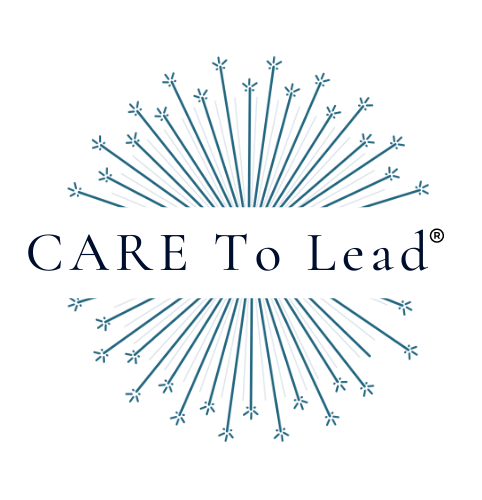“The carnage has taken 88 lives in 17 mass killings in 111 days.”
That quote was pulled directly from a recent article in PBS NewsHour.
And, this is what I know…
The next mass shooter could be sitting in the cubicle next to you or sharing lunch at the food truck down the street from your office.
As leaders, today more than ever, we must begin to understand that we are leading people, not just organizations. And people are often lonely, isolated, and struggling with depression or mental health issues that we know nothing about.
Yet, we are leaders not therapists. We can’t be expected to solve the world’s problems, can we?
Of course not. But we can do our part, and one way to begin is by creating organizational cultures that build community. Humans need connection, not isolation, and that doesn’t always happen organically. We have to put in the effort.
Peer support and community are both essential components of leadership development, and their significance can’t be overstated. In today’s fast-paced world, many of us spend a significant amount of time at work. Whether we work in an office or from home, our professional lives play a significant role in our overall well-being. While work can be fulfilling, it can also be stressful and isolating at times. This is where the importance of community comes in.
Community in our professional lives can be defined as a group of people who share common interests, goals, and values related to their work. Being part of a professional community can provide numerous benefits, including:
Networking Opportunities: One of the most significant benefits of being part of a professional community is the networking opportunities it provides. Building relationships with others in your field can help you stay up-to-date on industry trends, make valuable connections, and even lead to new job opportunities. – And keeping you connected and less isolated.
Professional Development: Professional communities often offer opportunities for professional development, such as training sessions, workshops, and conferences. These opportunities can help you expand your skills and knowledge and stay current in your field. – And help you feel relevant, like you’re contributing to the world.
Mentorship: Being part of a professional community can also provide access to mentorship opportunities. Having a mentor can help you navigate your career path, provide guidance and support, and offer valuable insights from their own experiences. – And give you that ‘connection’ to another human being that matters enormously in our psychological well-being.
Emotional Support: Work can be stressful at times, and having a community of colleagues who understand your struggles can be incredibly beneficial for your mental health. Being part of a community can provide emotional support, a sense of belonging, and reduce feelings of isolation and loneliness. – And this might be the only place where we find that support.
Collaboration: Being part of a professional community can also lead to collaboration opportunities. Working with others in your field can lead to new ideas, partnerships, and even innovative solutions to complex problems. – Which adds to our feeling of worth.
Research supports the benefits of being part of a professional community. A study published in the Journal of Business and Psychology found that employees who felt a sense of community at work reported higher job satisfaction and commitment, as well as lower levels of burnout and turnover intentions. The study also found that the sense of community at work was positively related to perceived organizational support, which in turn was related to higher job satisfaction and commitment (Chen et al., 2017).
Another study published in the Journal of Vocational Behavior found that professional communities can provide social support, information exchange, and opportunities for learning and growth. The study also found that being part of a professional community can lead to increased job satisfaction and better work performance (Choi, Lee, & Kim, 2016).
Supporting today’s leaders
Having a support system of peers who share similar challenges and experiences can be incredibly valuable for a leader. Community allows leaders to connect with others who understand the unique demands of their role, and can provide insights and feedback based on their own experiences.
Peer support can also help leaders to develop new skills and perspectives. By engaging with others who approach challenges in different ways, leaders can expand their own problem-solving abilities and gain a broader understanding of the issues they face.
Most importantly, peer support can provide a valuable source of encouragement and motivation. Leadership can be a lonely and isolating experience, particularly in times of stress or uncertainty. Having a group of peers who are there to offer support and understanding can make all the difference in maintaining the resilience and focus needed to succeed.
Community is different today than it was a decade ago, but even with all the online platforms and social groups available, nothing beats face-to-face connection. And when actively cultivated within an organization it’s going to make a positive impact.
Don’t just take my word for it
One study published in the Journal of Leadership Education found that leaders who had access to peer support were more likely to engage in self-reflection, seek feedback, and develop a growth mindset, all of which are key components of effective leadership development.
Another study published in the Journal of Business and Psychology found that leaders who had a strong network of peers reported lower levels of stress and higher levels of job satisfaction than those who lacked such a support system.
Additionally, a meta-analysis of studies on leadership development published in the Journal of Applied Psychology found that interventions that included peer support were associated with significant improvements in leadership effectiveness, job satisfaction, and team performance.
Conclusion
Research aside, to me, it’s about community. Supporting one another. Having a place where we can connect in a deeper way than a ‘thumbs up’ on Facebook.
It’s so important for our own mental health, as well as for the mental health of our teams. And these days I think we all agree that mental health struggles in our leaders and employees are affecting our organizations.
If you’re a leader, it’s clear that cultivating a network of supportive peers can have a significant positive impact on your development and overall well-being.
Not to mention it may be the only place where that person in the cubicle next to you finds connection at all. And, doesn’t that matter to all of us?
If you’ve been feeling alone, isolated, stressed and anxious… a CAREtoLead® Community might be just the right thing for you. Learn more about how you can join this powerful community.
- Pescosolido, A. T., & Masterson, S. S. (2018). The role of peer support in leadership development: The relationship between peer support and leadership self-efficacy, self-reflection, and growth mindset. Journal of Leadership Education, 17(3), 98-114.
- Manzano, G., & Ayala, J. C. (2019). The role of peer support in leader well-being: The mediating effect of job satisfaction. Journal of Business and Psychology, 34(2), 269-282.
- Eby, L. T., Allen, T. D., Hoffman, B. J., Baranik, L. E., Sauer, J. B., Baldwin, S., … & Evans, S. C. (2013). An interdisciplinary meta-analysis of the potential antecedents, correlates, and consequences of protégé perceptions of mentoring. Psychological Bulletin, 139(2), 441-476.
- Chen, Y., Peng, Y., & Liu, J. (2017). Sense of community and perceived organizational support: Impact on work engagement and turnover intentions. Journal of Business and Psychology, 32(4), 357-369. doi: 10.1007/s10869-016-9461-1
- Choi, B., Lee, H., & Kim, M. (2016). The effects of professional community on job satisfaction and job performance: The mediating role of self-efficacy. Journal of Vocational Behavior, 92, 96-105. doi: 10.1016/j.jvb.2015.10.006












0 Comments